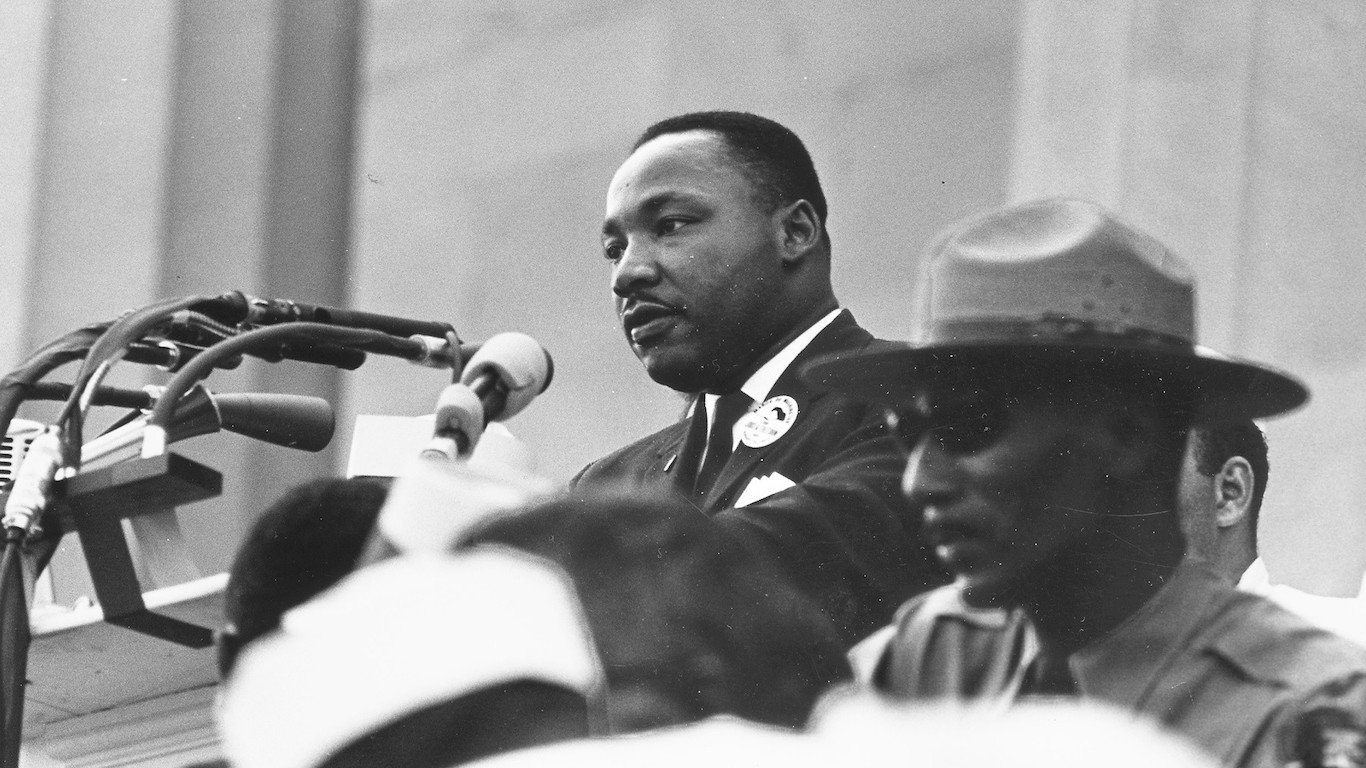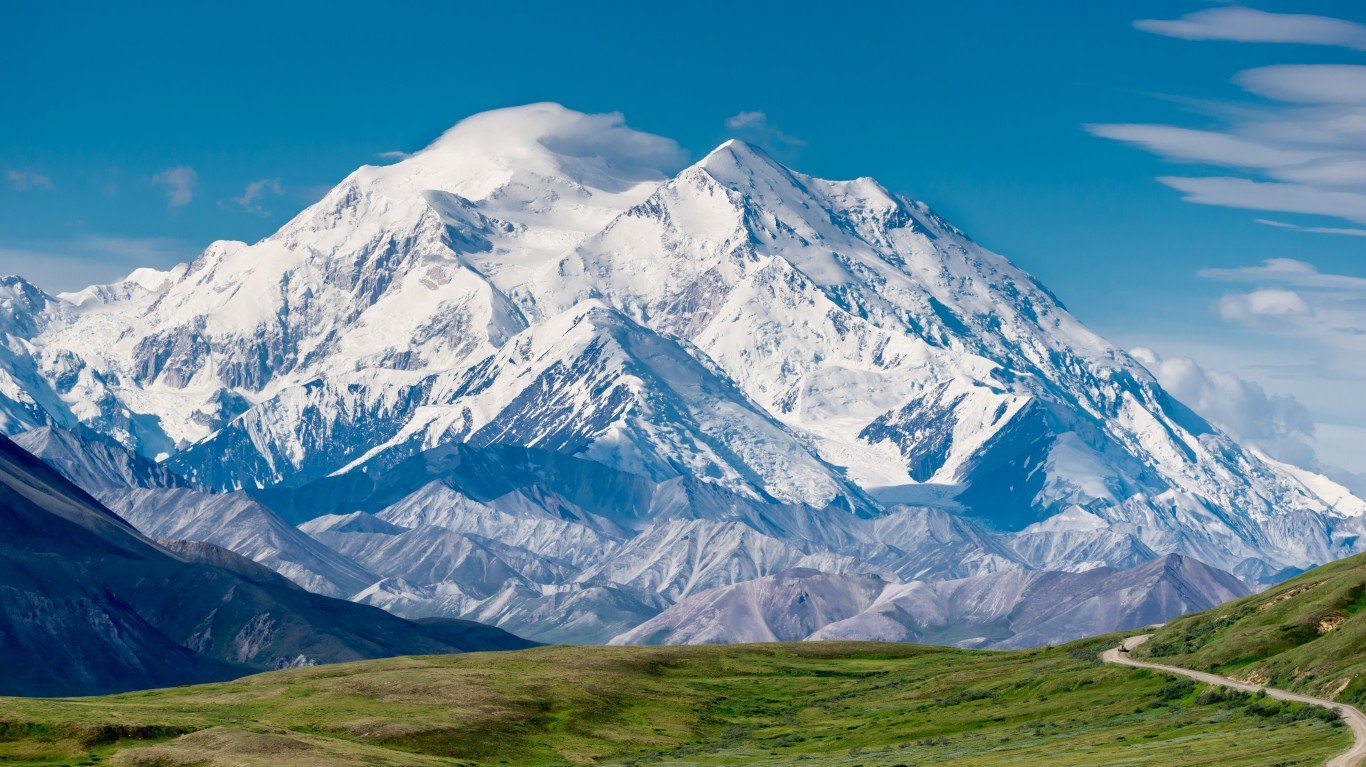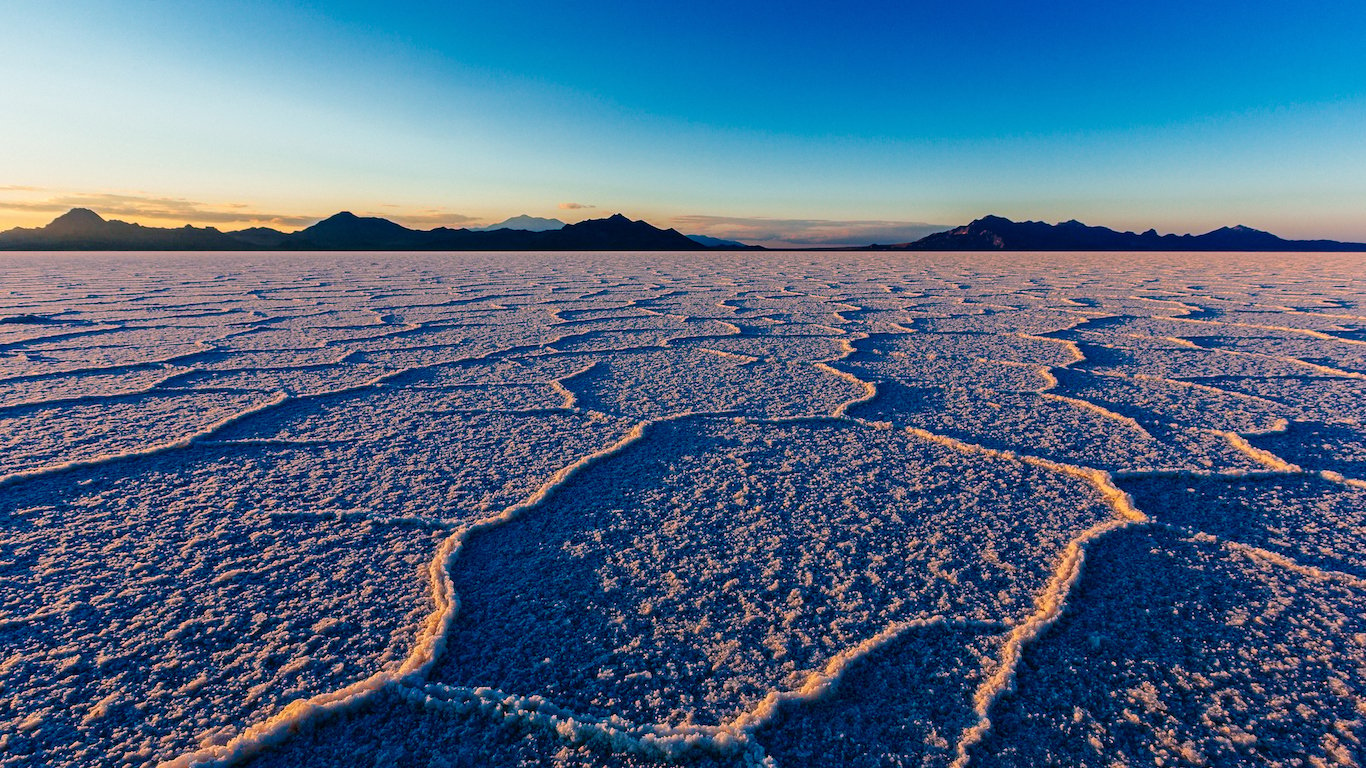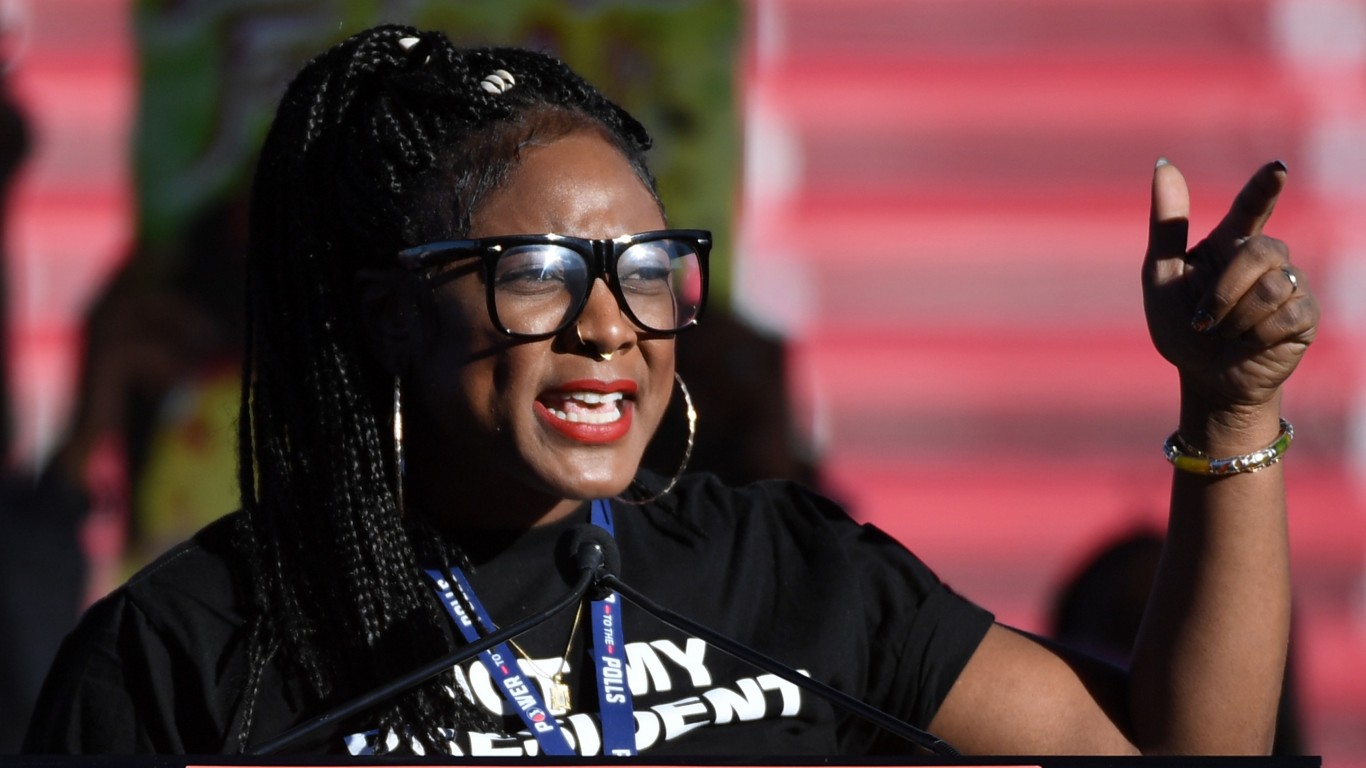

The killing of George Floyd, a 46-year-old African American man, on May 25 while he was arrested by Minneapolis police, has brought a renewed focus on racial injustices in the American criminal justice system, which include mass incarcerations and excessive punishment. These are the issues that activists have raised since the earliest days of the civil rights movement.
Today’s civil rights leaders have picked up the mantle once held by Martin Luther King Jr., Malcolm X, Roy Wilkins, and Dorothy Height. Today’s civil rights leaders are addressing the challenges and injustices faced by people of color; the LGBTQ community; women; undocumented immigrants; and the Muslim community.
As the nation processes the emotional reaction to Floyd’s death, 24/7 Tempo has compiled a list of the most important civil rights leaders of the 21st century. We created our list after reviewing biographies and news stories from resource material, websites of organizations such as the National Association for the Advancement of Colored People, the Nobel Prize website, and media sites.
Click here to see the most important civil rights leaders of the 21st century
Click here to read our detailed findings and methodology

1. Esmeralda Simmons
> Occupation: Executive director of the Center for Law and Social Justice at Medgar Evers College
> Location: Brooklyn, NY
> Cause: Quality public education for students of color
Esmeralda Simmons has been engaged in the fight for equal rights for more than three decades. As a civil rights lawyer, she has worked in the U.S. Department of Education, for a federal judge, and throughout New York state and city government. Simmons now runs the Center for Law and Social Justice at Medgar Evers College in Brooklyn, which provides legal services to people facing voter suppression and discrimination.
[in-text-ad]
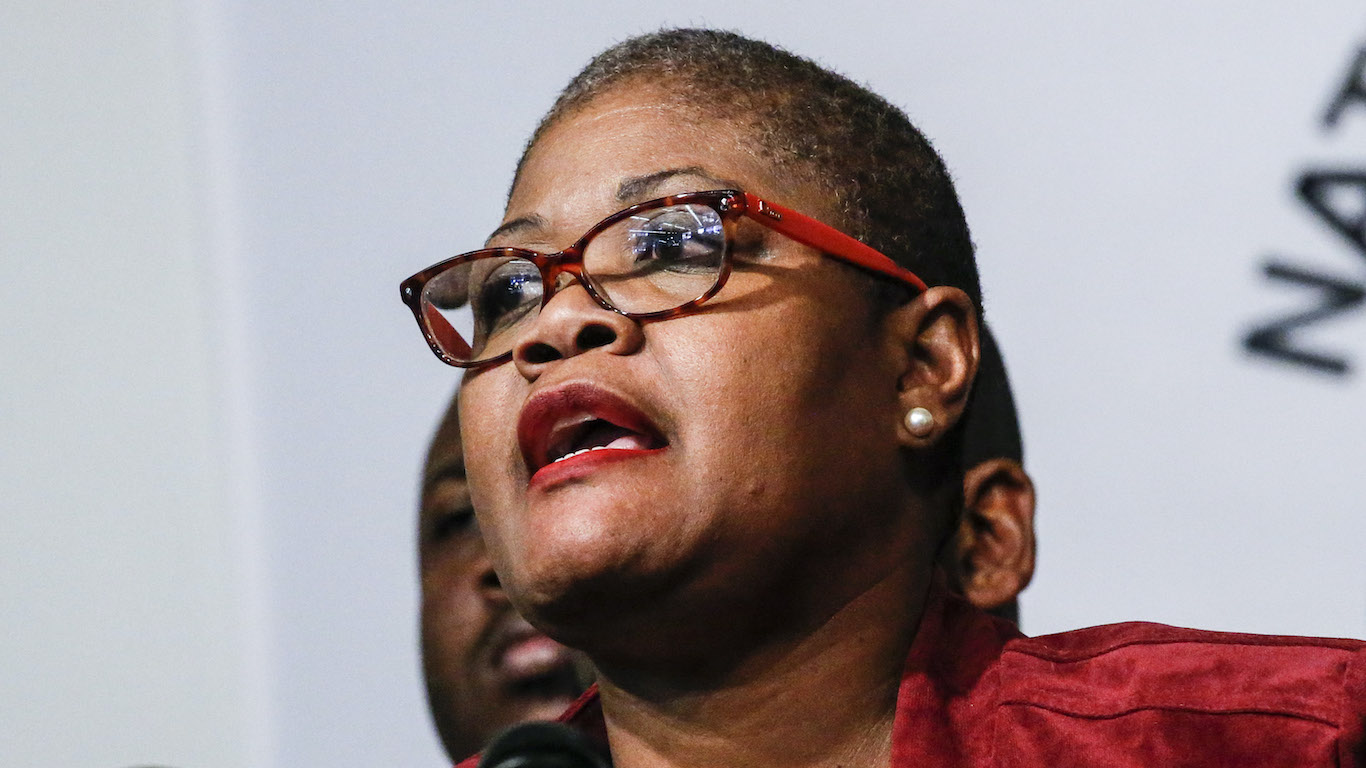
2. Melanie Campbell
> Occupation: CEO of the National Coalition on Black Civic Participation
> Location: Washington, D.C.
> Cause: Civic engagement
Melanie Campbell has worked for youth and women’s rights for more than two decades. She was recognized as one of Washington D.C.’s Top 40 Under 40 Emerging Leaders in 2000. Campbell has helped create a youth-focused leadership development program, Black Youth Vote!, and played a key role in the 2012 election, when the 66.2% of eligible black voters who participated in the election surpassed white, hispanic and Asian voting rates for the first time in history.
Campbell also runs the Black Women’s Roundtable, which advocates for policies to advance women, including appointing them to high-level positions in government.
3. James Rucker
> Occupation: Co-founder of Color of Change
> Location: Oakland, CA
> Cause: Citizen lobby for African-Americans
James Rucker is the co-founder of Color of Change, a web-based advocacy group using social networking to address racial issues. The group has grown to be the largest online racial justice organization in the U.S. with 1.7 million members.
Over the years, the organization has raised awareness for the cause of the Jena Six, fighting racially-motivated unequal treatment across the country, boosting black voters participation, and challenging racist state policies.

4. Lateefah Simon
> Occupation: President of the Akonadi Foundation
> Location: San Francisco Bay Area, CA
> Cause: Racial justice
In 2003, when she was just 26, Lateefah Simon won a MacArthur genius grant for her work helping impoverished and formerly incarcerated women. She has kept fighting against injustice and working in marginalized communities, helping young activists thrive. Today, Simon runs the Akonadi Foundation, which works to eliminate structural inequalities and create a just society.

5. Susan Burton
> Occupation: Founder and Executive Director A New Way of Life
> Location: Los Angeles
> Cause: Support to formerly incarcerated women
Susan Burton founded A New Way of Life, which aims to reduce recidivism rates and help women after their release from prison after she had been in and out of prison for drugs and nonviolent crimes for two decades. In 2010, Burton received the Gleitsman Citizen Activist Award from the Harvard Kennedy School and was named a CNN Top 10 Hero. A New Way of Life provides sober living, free legal services, and other support to formerly incarcerated women.
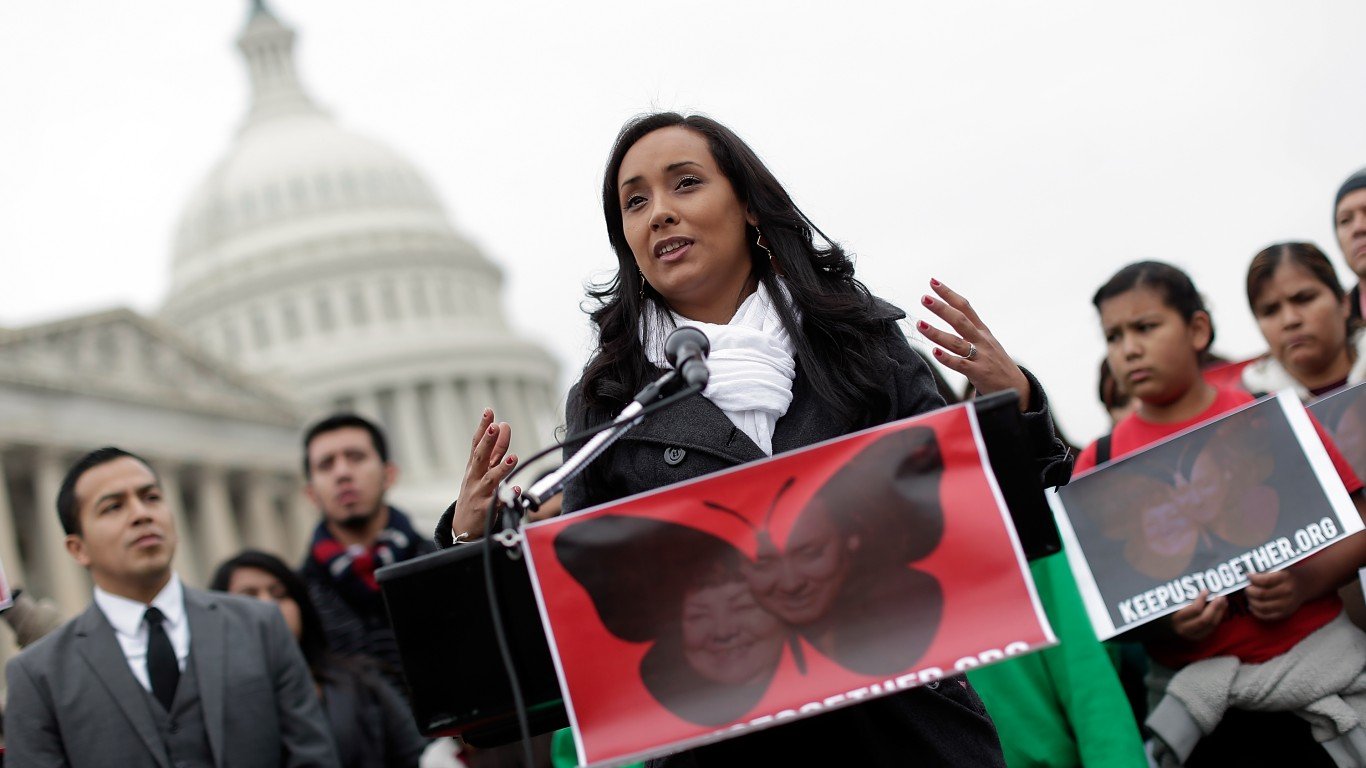
6. Erika Andiola
> Occupation: Chief Advocacy Officer for RAICES
> Location: Phoenix, AZ
> Cause: Immigration rights
Erika Andiola is among Arizona’s most prominent immigration reform activists. In 2012, Andiola appeared on the cover of Time magazine with 35 other immigrants living in the U.S. without papers. Her Twitter handle still says “undocumented and unafraid.” In 2014, she appeared in a viral video in which she confronted former-Rep. Steve King (R-Iowa) over federal immigration policy. Andiola co-founded the Arizona Dream Act Coalition and is now the Chief Advocacy Officer for RAICES, which defends the rights of immigrants and refugees.
[in-text-ad]

7. Kimberlé Crenshaw
> Occupation: Professor of Law at UCLA and Columbia Law School
> Location: NY, LA, SF & Canton, OH
> Cause: Race and gender equality
Kimberlé Crenshaw, a professor of law at UCLA and Columbia Law School, is a leading authority in the area of civil rights, constitutional law, race, and gender equality. Her work brings awareness to the problems that victims of simultaneous racial and gender prejudice face. She was the leader of the Why We Can’t Wait Campaign, which called for the inclusion of girls and young women of color in President Barack Obama’s My Brother’s Keeper Initiative. Crenshaw has worked for a gender-inclusive approach to racial justice interventions.
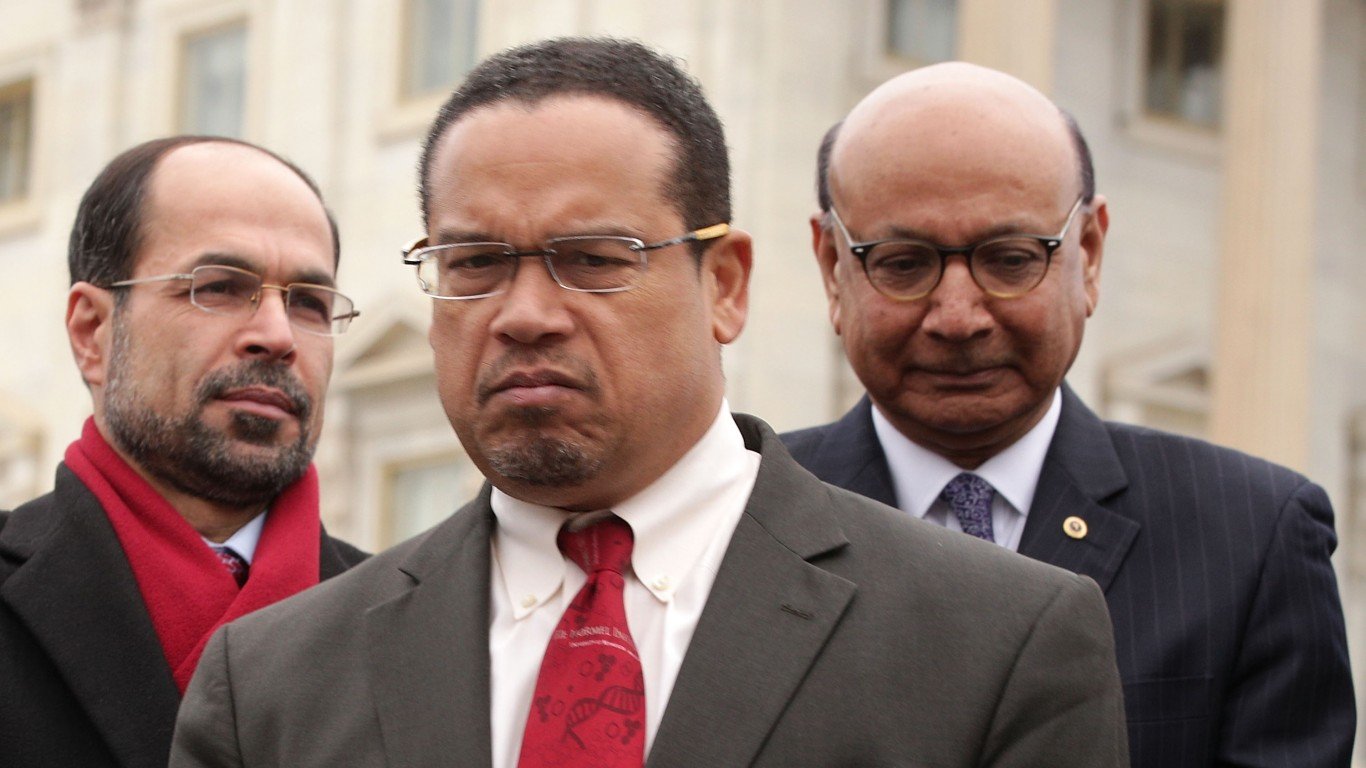
8. Nihad Awad
> Occupation: Co-founder and CEO of the Council on American-Islamic Relations
> Location: Washington, D.C.
> Cause: Muslim civil liberties
Nihad Awad, who leads the Council on American-Islamic Relations (CAIR), the country’s largest Islamic advocacy organization, has been one of America’s foremost Muslim voices after the 9/11 terrorist attacks. The group monitors hate crimes and discrimination against Muslim Americans. The organization also counsels and advocates for people who have experienced religious discrimination. In 2017, Nihad was the recipient of the Phillips Brooks House Association’s Robert Coles “Call of Service” Lecture and Award, which is meant to “bring a significant leader in public service to Harvard each fall.”
9. Chad Griffin
> Occupation: Founder of American Foundation for Equal Rights
> Location: Washington, D.C.
> Cause: LGBTQ rights
Chad Griffin was a Los Angeles political consultant when he brought the then-risky lawsuit against California’s ban on same-sex marriage in 2013. Since then, Griffin has waged social and legal campaigns to win new supporters. In 2015, the Supreme Court ruled that the Constitution guarantees the right to same-sex marriages. Until recently, Griffin was the president of the Human Rights Campaign, the largest civil rights organization working to achieve equality for LGBTQ people in the U.S.

10. Ciara Taylor
> Occupation: Co-founder of Dream Defenders
> Location: New York City
> Cause: Racial justice and minority voters
Ciara Taylor became an activist after Trayvon Martin, an African American teenager, was killed during an altercation with a community watch member in Florida in 2012. She is now political director of Dream Defenders, a Florida-based group that staged a sit-in at the Florida Capitol to protest the state’s “stand your ground” law. Dream Defenders grew to be a community organizing collective that fights for social justice and against the status quo. Taylor is now a special project coordinator at Code Pink and works to raise awareness to the consequences of the U.S. invasion of Iraq.
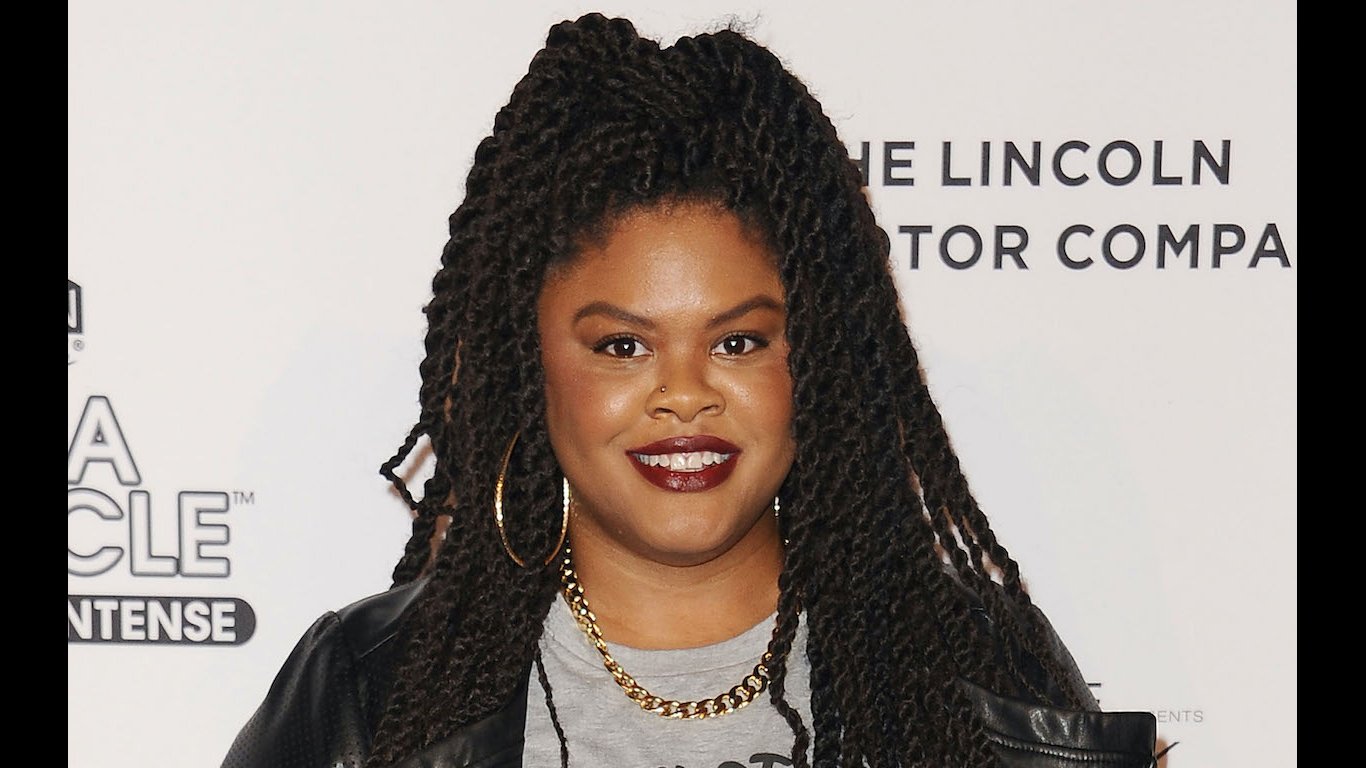
11. Johnetta Elzie
> Occupation: Co-edits the Ferguson protest newsletter This Is the Movement
> Location: Chicago and St. Louis
> Cause: Racial justice
The protests after the fatal shooting of 18-year-old Michael Brown by police in Ferguson, Missouri, had no one single leader, but Johnetta Elzie emerged as one of the most prominent voices of the protests. She, along with DeRay Mckesson, published a daily newsletter, This Is the Movement, that gained thousands of followers. Elzie helped found We The Protesters, the first digital civil rights movement in the U.S. and a Ferguson-based activist group that tracks police violence and holds police officers accountable.
[in-text-ad]
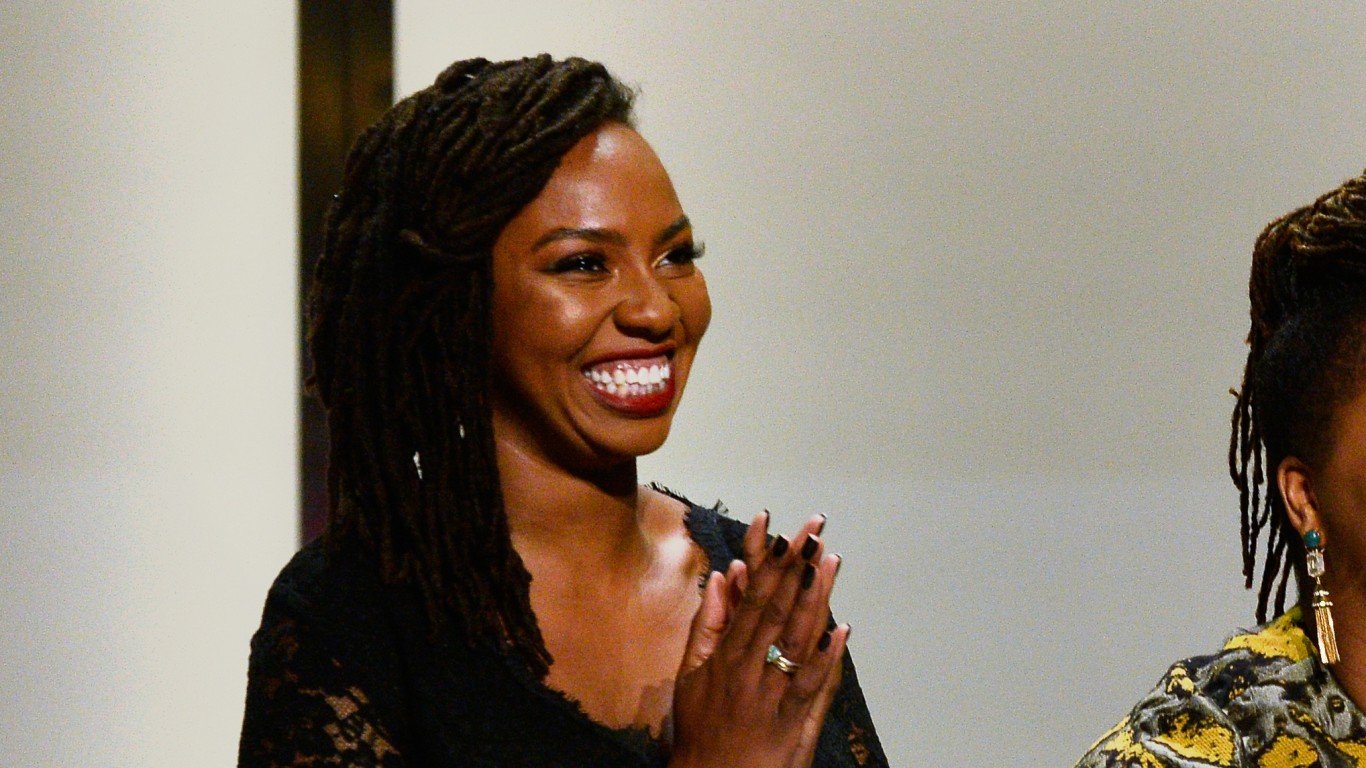
12. Opal Tometi
> Occupation: Co-founder of Black Lives Matter and Executive Director at BAJI
> Location: Brooklyn, NY
> Cause: Bringing attention to racial inequities
Opal Tometi, whose parents were undocumented immigrants from Nigeria, has been active in immigrant rights movements for several years. Tometi is one of three co-founders of the Black Lives Matter movement — working on its social media strategy — and is the director of the Black Alliance for Just Immigration, which works with black immigrant communities and advocates for immigrant rights and racial justice.
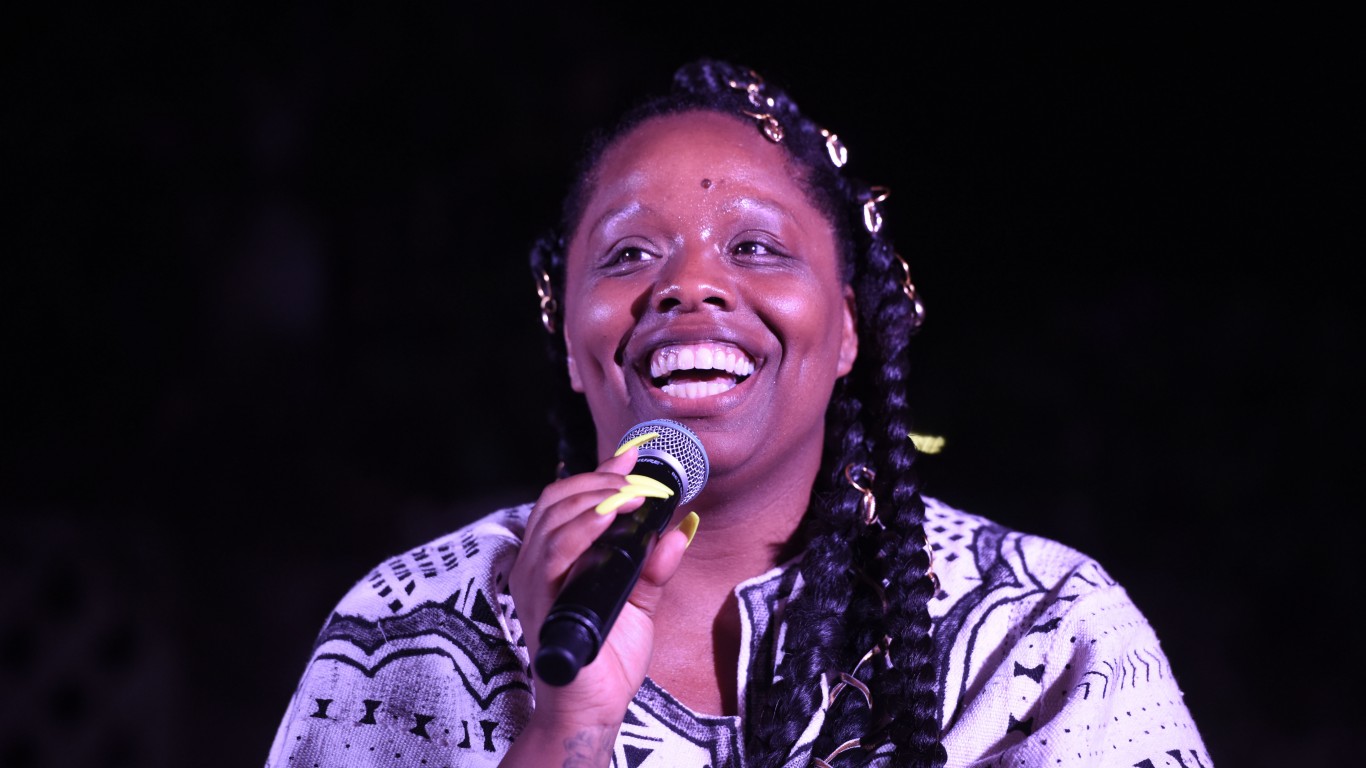
13. Patrisse Cullors
> Occupation: Co-founder of the Black Lives Matter
> Location: Los Angeles
> Cause: Prison abolition
Patrisse Cullors founded the group Dignity and Power Now in 2012 to fight for law enforcement reform in Los Angeles County as well as for dignity and power of incarcerated people. Cullors wrote the #BlackLivesMatter hashtag — now a nationwide movement to end police violence against black people — after George Zimmerman, who fatally shot Trayvon Martin in 2012, was found not guilty of criminal charges in 2013. Cullors and the other founders of BLM received the Sydney Foundation Peace Prize for “building a powerful movement for racial equality.”
14. Michelle Alexander
> Occupation: Law professor at Ohio State University
> Location: Columbus, OH
> Cause: Fighting racial oppression
Michelle Alexander’s book, “The New Jim Crow: Mass Incarceration in the Age of Colorblindness,” argued that the racial oppression of the 20th century had been replaced by a new system of racial oppression — prisons, filled disproportionately with black men. The book has become a must-read for civil rights activists, according to a foreword of the book by Harvard University Public Philosophy Professor Dr. Cornel West. Alexander, who is a civil rights lawyer, has litigated numerous class action discrimination cases.

15. Alicia Garza
> Occupation: Director at the National Domestic Workers Alliance and co-founder of Black Lives Matter
> Location: Oakland, CA
> Cause: Anti-racism
One of three co-founders of Black Lives Matter, Alicia Garza is now the Special Projects Director for the National Domestic Workers Alliance, which works to bring dignity and fairness to the millions of domestic workers in the U.S. As a black queer woman, Garza also works toward bringing attention to the contributions of black queer women to popular narratives of black movements. She tries to bring a more intersectional understanding of civil rights to the public.
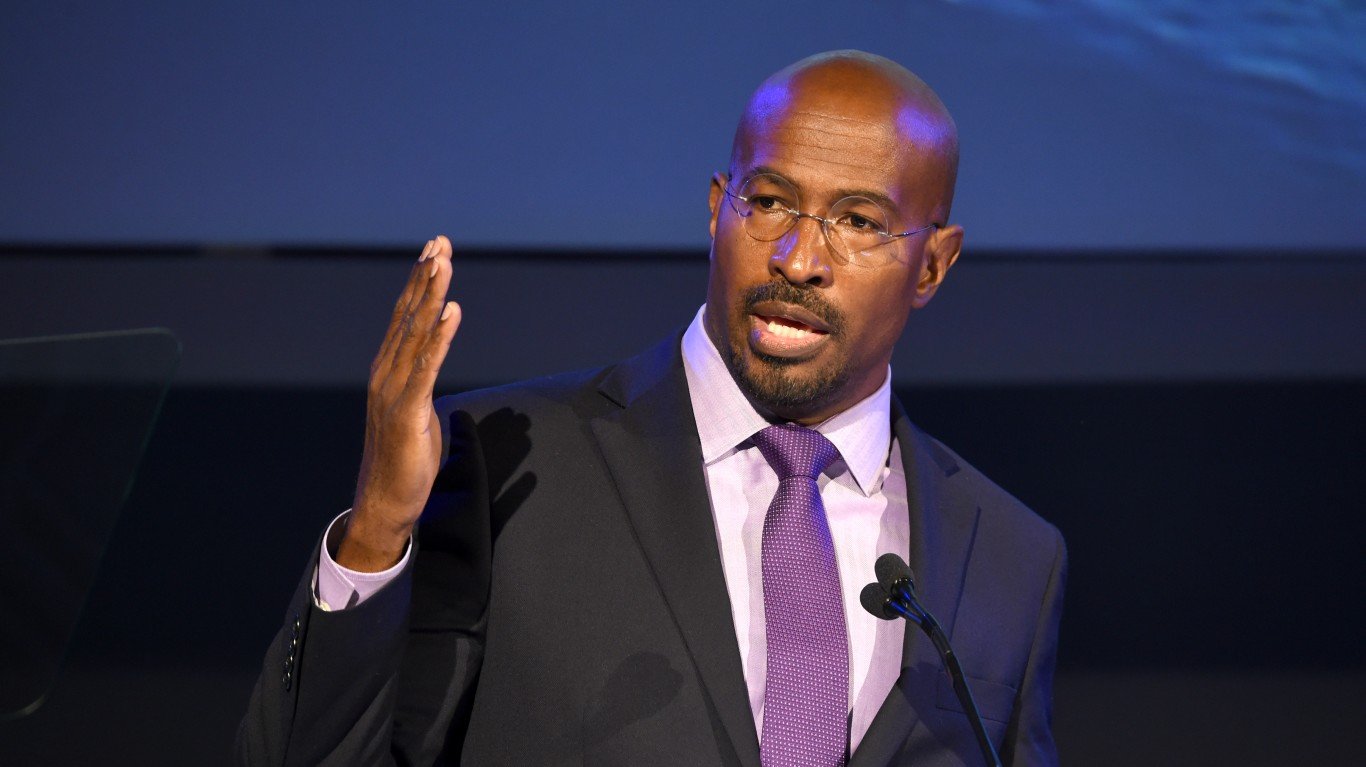
16. Van Jones
> Occupation: CNN commentator and co-founder of Color of Change
> Location: New York City and Los Angeles
> Cause: Racial justice
Van Jones is a recognized human rights and green jobs activist. In 2008, Time Magazine named Jones one of its Heroes of the Environment. Before he turned his attention to clean energy activism, he helped found the Ella Baker Center for Human Rights and Color of Change, two social justice organizations giving a voice to vulnerable communities. As a CNN commentator, he often discusses racial inequality and police brutality against black Americans.
[in-text-ad]
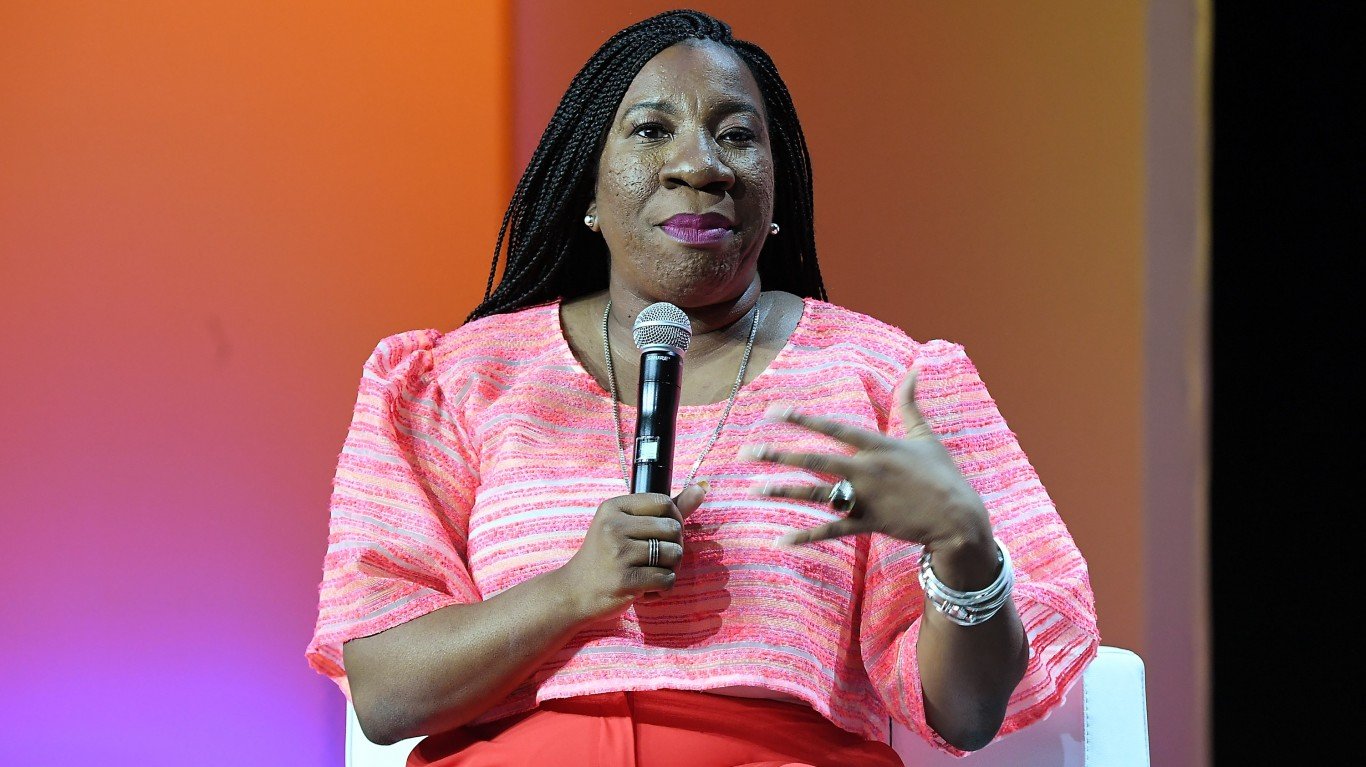
17. Tarana Burke
> Occupation: Founder of the Me Too movement
> Location: Harlem, NY
> Cause: Gender equity
Tarana Burke is the founder of Me Too, an activist group helping survivors of sexual violence. A decade after its founding, the group’s slogan became the hashtag #MeToo, which millions of women all over the world have used to share their sexual abuse stories, bringing down several powerful men in the process. Burke’s life’s work has been about helping people of color and marginalized groups, mostly young women and girls.
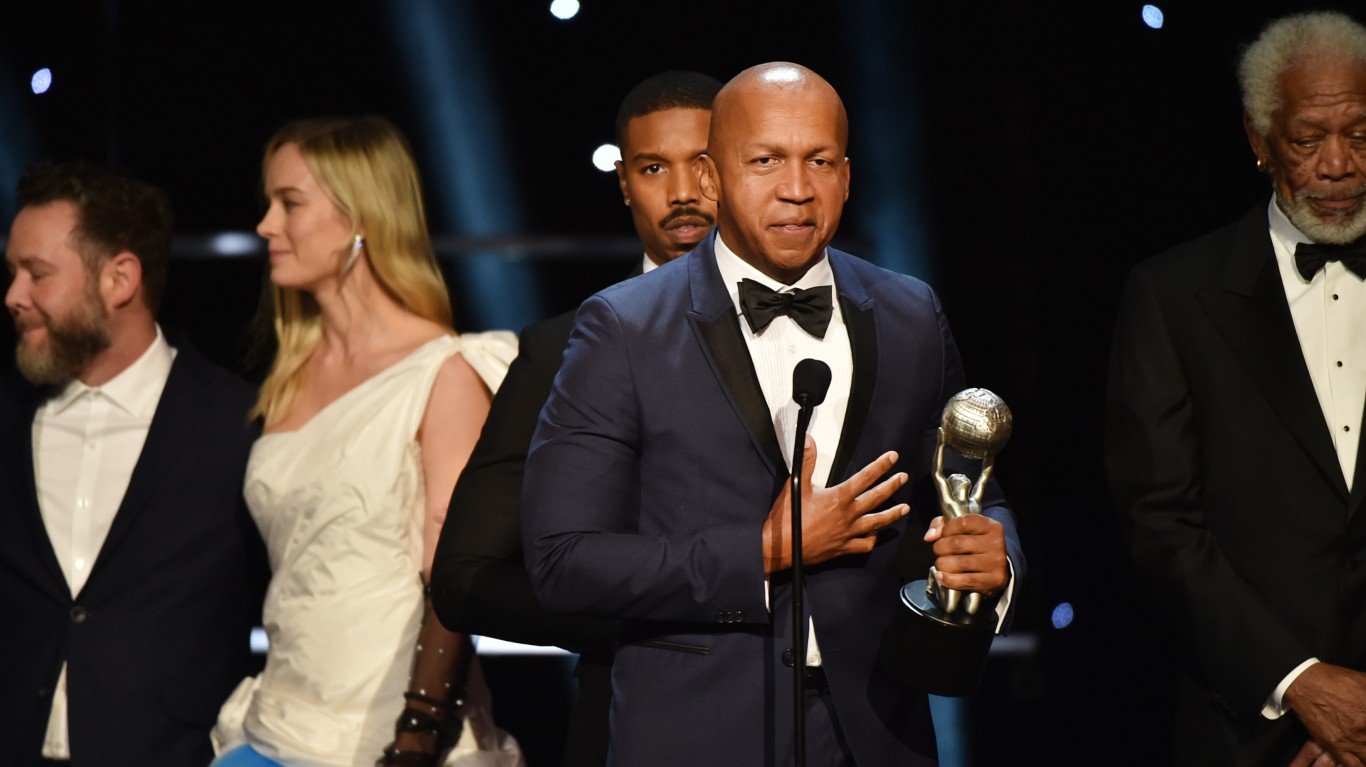
18. Bryan Stevenson
> Occupation: Founder and Executive Director of the Equal Justice Initiative
> Location: Montgomery, AL
> Cause: Fighting racial discrimination
Bryan Stevenson, a public interest lawyer, founded The Equal Justice Initiative of which he is the executive director. The EJL is focused on fighting injustice in the criminal justice system and seeks to reduce mass incarceration, racial disparities in the justice system, and punishments considered to be too punitive. Among the initiative’s accomplishments is uncovering 800 previously undisclosed lynching incidents. Stevenson and his group have helped dozens of wrongly condemned prisoners on death row to gain reversals of their convictions, relief, or release. He was also instrumental in the creation of the Legacy Museum and the National Memorial for Peace and Justice, two cultural institutions that detail the enduring effects of slavery, lynching, and racial segregation on African Americans.
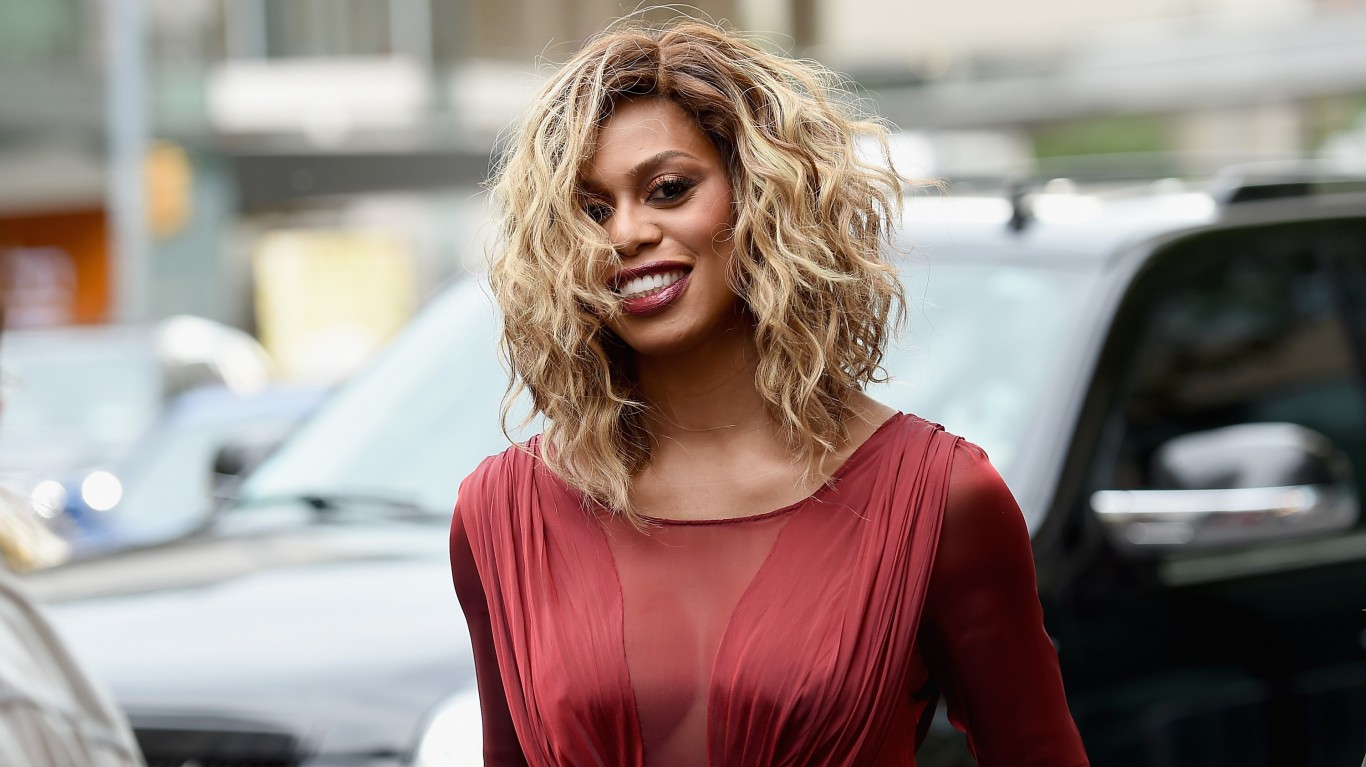
19. Laverne Cox
> Occupation: Actor
> Location:
> Cause: LGBTQ rights
Laverne Cox has been nominated three times for Guest Actress in a Drama Series her role in the Netflix prison series “Orange Is the New Black.” Her character is in prison for swiping credit cards to fund her gender transition. Cox is also the face of the transgender movement, appearing on the cover of Time magazine in 2014 with the headline, “The Transgender Tipping Point.” Cox has been frank about her struggles of being bullied as a male child in Alabama and her suicice attempt. She has overcome those obstacles to forge a successful acting career.
Detailed Findings
The new generation of civil right leaders include Patrisse Cullors and Opal Tometi, co-founders of Black Lives Matter; Bryan Stevenson, founder and executive director of the Equal Justice Initiative; Tarana Burke, the founder of the #MeToo movement; and Laverne Cox, from the TV series “Orange Is the New Black” who has become the face of the transgender movement.
All of the civil rights activists on the list are looking to advance the work of the civil rights pathfinders of the 20th century and those before them as the new generation works toward building a society based on justice and equality, a quest that has so far proved elusive in the United States in 2020. These are the most important civil rights leaders of the 20th century.
Methodology
To identify 23 of the most influential civil rights leaders since 2000, 24/7 Wall St. compiled a list of well-known activists after reviewing biographies and news stories from resource material, websites of organizations such as the NAACP, the Nobel Prize website, and media sites. Including all important individuals fighting for civil rights and social justice is impossible because there are so many. Our list is composed of civil rights leaders who are still very active and are working in various fields — from racial justice and LGBTQ rights to support for formerly incarcerated women and religious liberties.
Sponsored: Want to Retire Early? Here’s a Great First Step
Want retirement to come a few years earlier than you’d planned? Or are you ready to retire now, but want an extra set of eyes on your finances?
Now you can speak with up to 3 financial experts in your area for FREE. By simply clicking here you can begin to match with financial professionals who can help you build your plan to retire early. And the best part? The first conversation with them is free.
Click here to match with up to 3 financial pros who would be excited to help you make financial decisions.
Thank you for reading! Have some feedback for us?
Contact the 24/7 Wall St. editorial team.
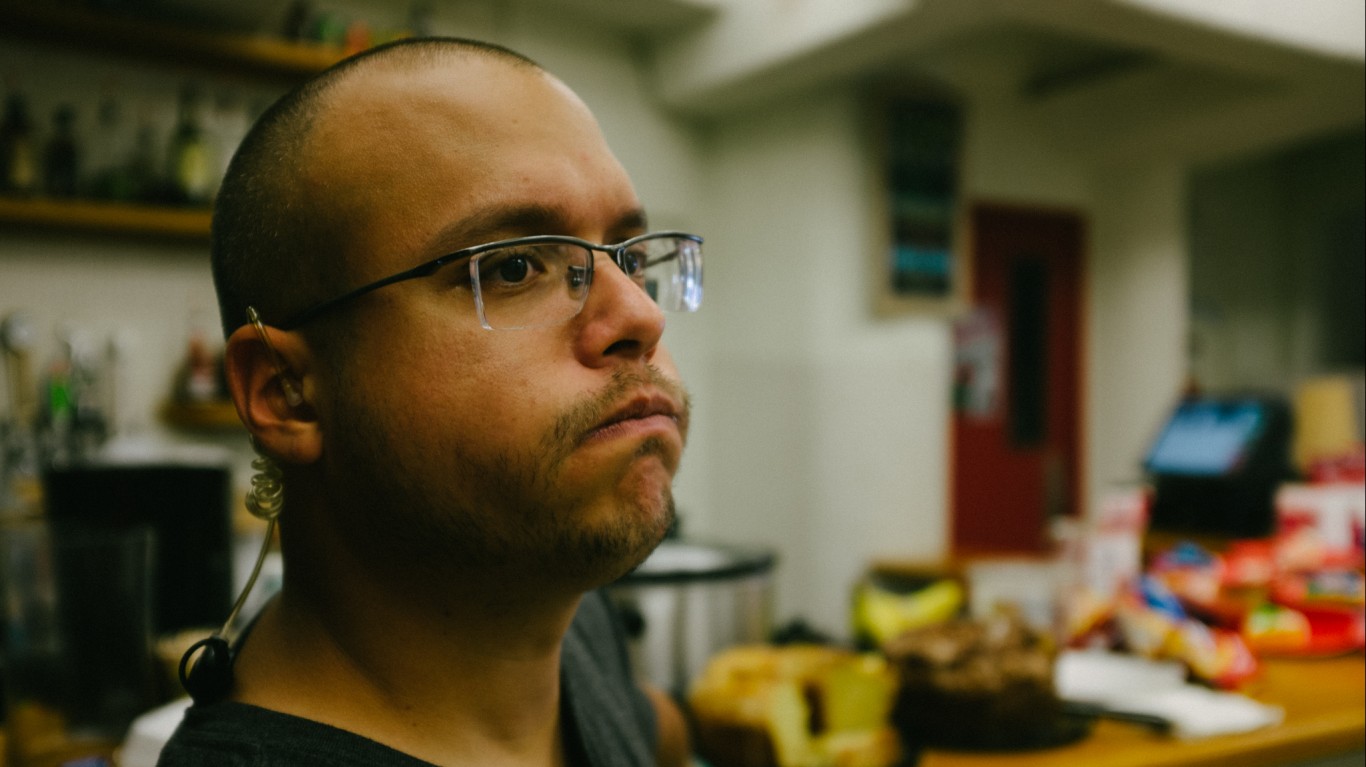
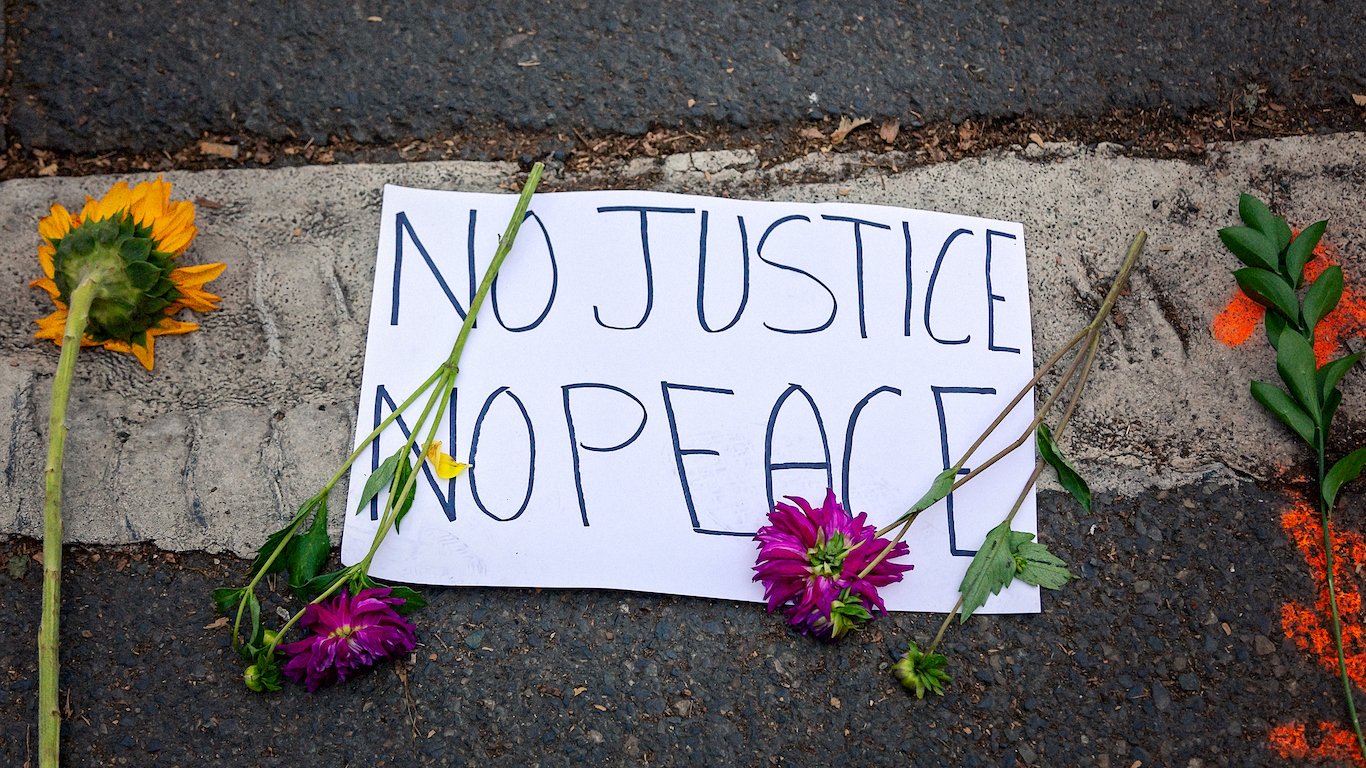 24/7 Wall St.
24/7 Wall St.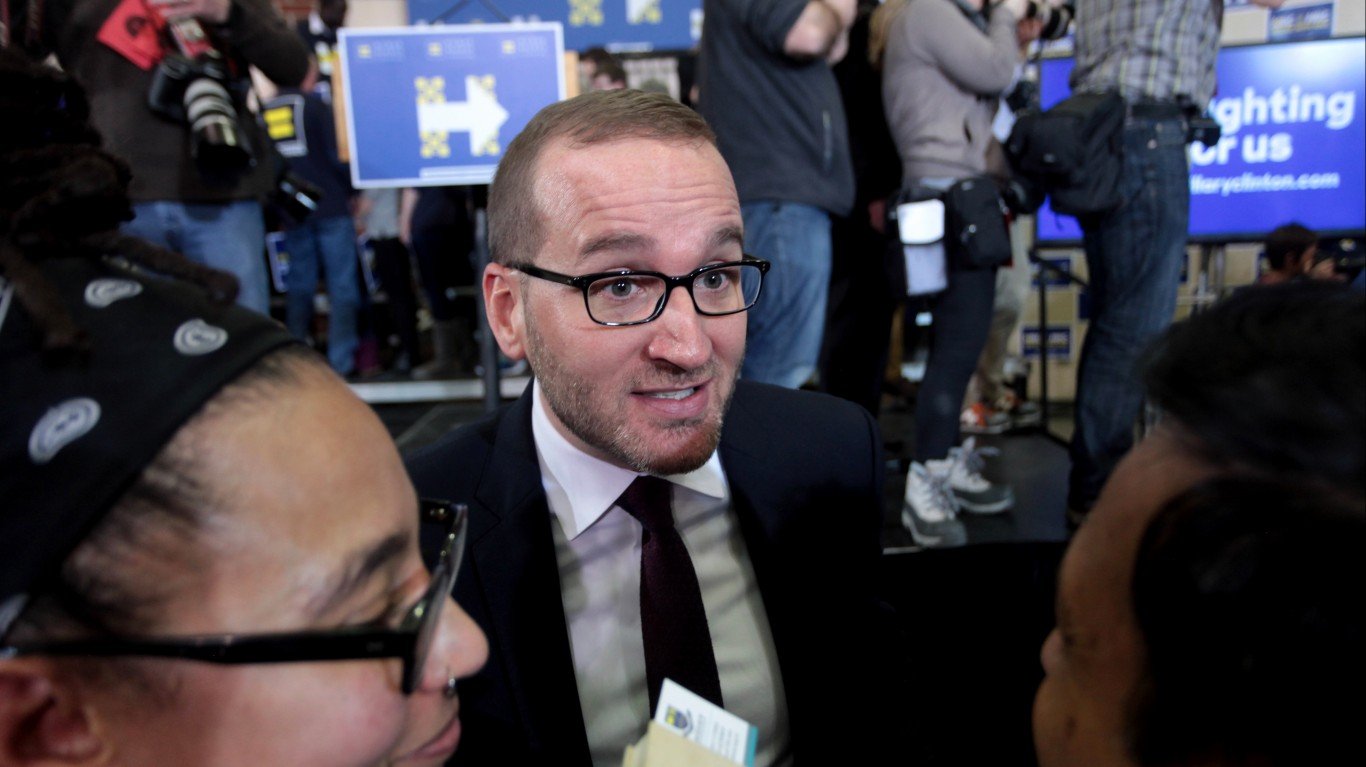
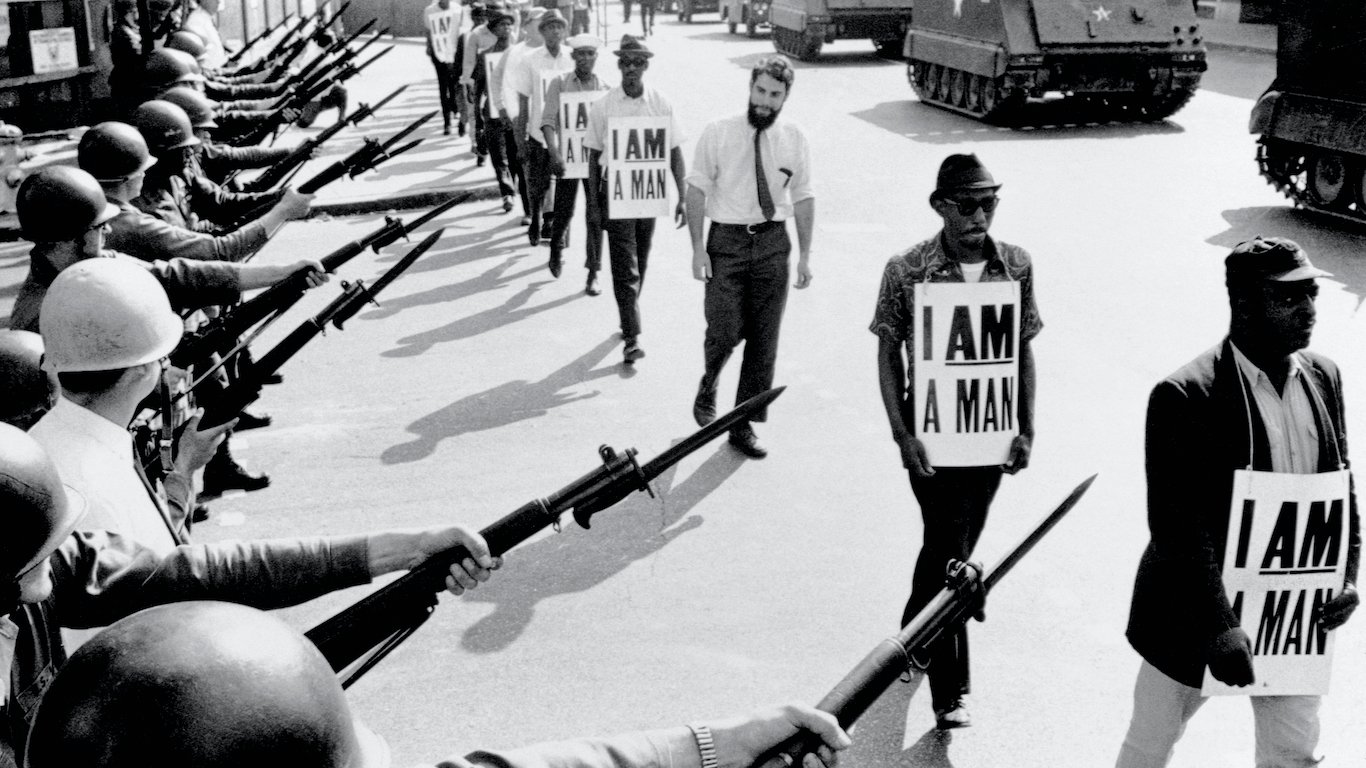 24/7 Wall St.
24/7 Wall St.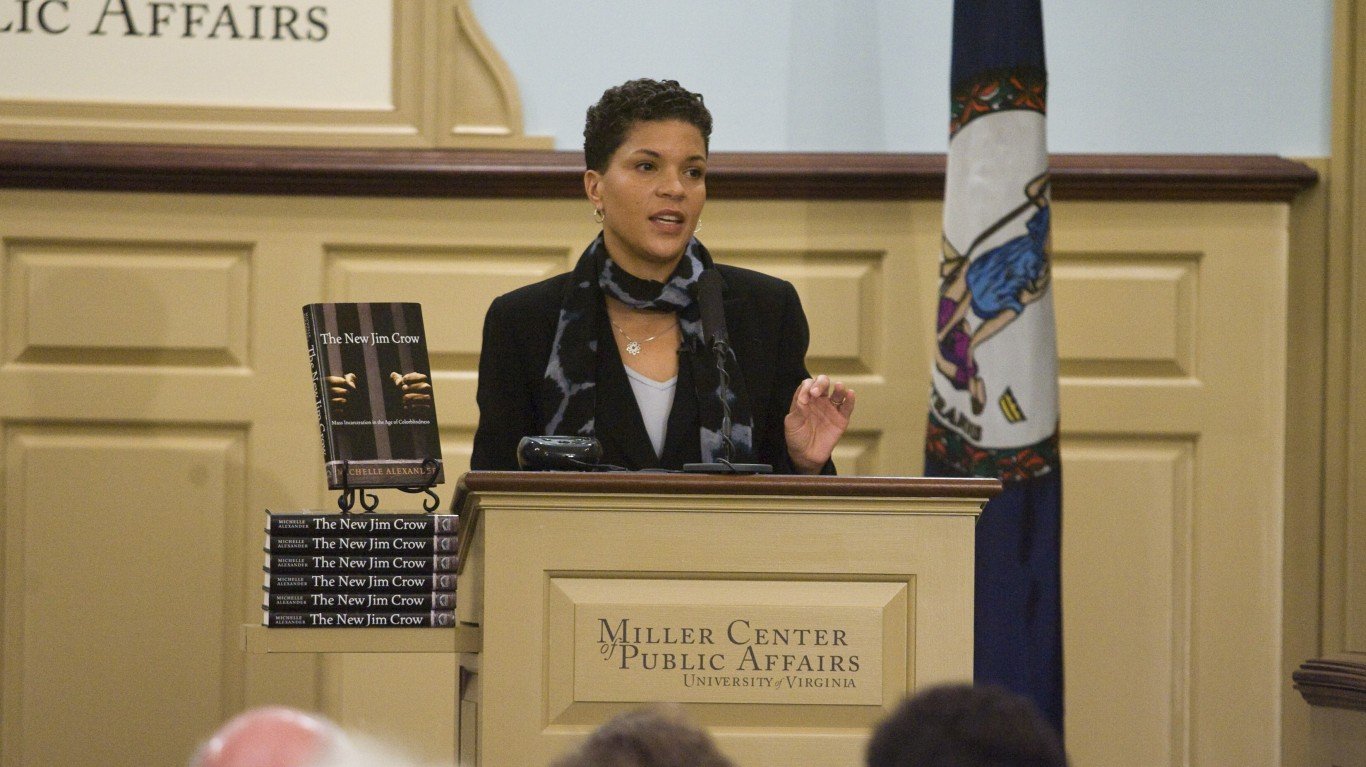
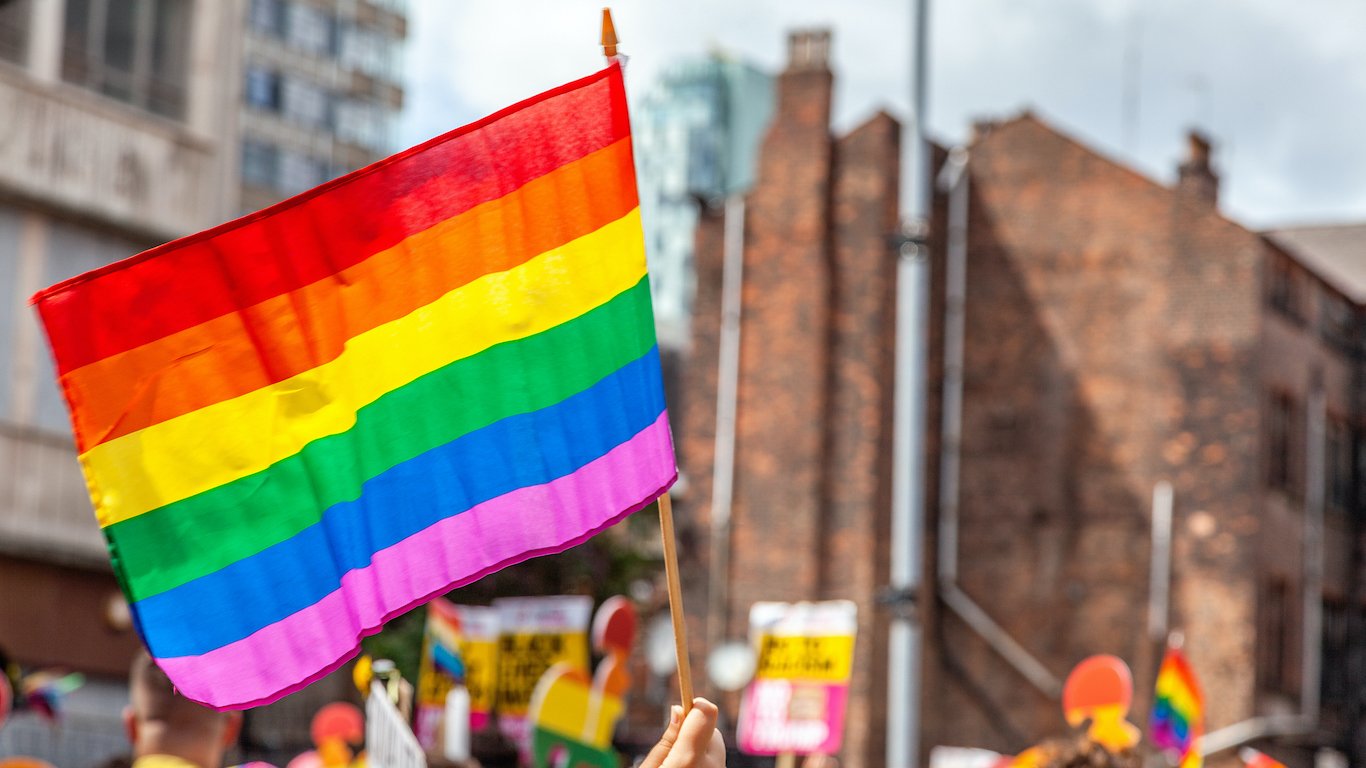 24/7 Wall St.
24/7 Wall St.